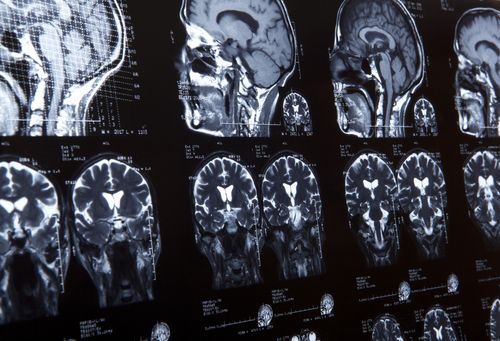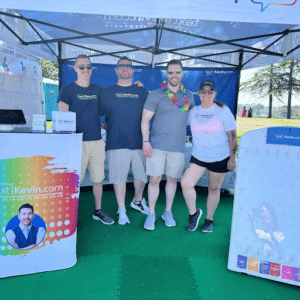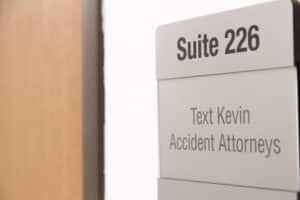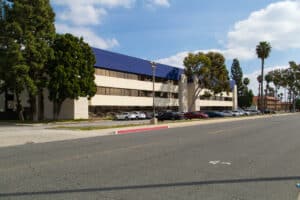Traumatic Brain Injury (TBI) is a broad term that includes brain damage, concussions, and head traumas. No matter what term you choose to use, the consequences of this specific type of injury can have lasting and even permanent consequences.
It is not uncommon for brain injuries to cause psychological and physical issues that can change the lives of victims and their families. The laws of the state of Georgia allow the victims of accidents caused by the carelessness, negligence, or intentional actions of others to seek compensation.
At Crockett Law Firm, our Fullerton brain injury lawyer have extensive experience in representing the victims of accidents that have resulted in traumatic brain injury. We have recovered many millions of dollars in compensation for our clients and look forward to doing the same for you.
If you are facing TBI related to an accident or the actions of another person, call (888) 965-3827 and get in contact with an experienced Fullerton personal injury lawyer from Crockett Law Firm.
How Do I Know if I Have a Brain Injury?
Traumatic brain injuries can occur in devastating accidents and smaller seemingly innocuous incidents as well. Because the brain is an especially delicate piece of biological hardware, only a small amount of force needs to be applied in the right way to cause considerable damage. This underscores the importance of a thorough medical examination after sustaining an impact on the head.
Here are some of the more common cognitive, behavioral, physical, and psychological symptoms of brain damage:
Cognitive:
- Amnesia
- Mental Confusion
- Difficulty Concentrating
- Inability to speak or understand language
- Difficulty thinking and understanding
- Inability to recognize common things
- Inability to create new memories
Behavioral:
- Abnormal laughing and crying
- Impulsivity
- Irritability
- Lack of restraint
- Persistent repetition of words or actions
- Aggression
- Difficulty speaking or slurred speech
Physical:
- Blackout
- Fainting
- Fatigue
- Dilated pupils
- Unequal pupils
- Racoon eyes
- Nausea
- Sensitivity to light
- Headaches
- Ringing in the ears
- Loss of sense of smell
- Hypertonia
Psychological:
- Aggression
- Anger
- Apathy
- Anxiety
- Depression
- Loneliness

What Are Some of the Leading Causes of Traumatic Brain Injury?
The brain is encased inside a boney fortification and suspension system of bones and ligaments that can absorb a considerable amount of damage.
Despite this, the brain is still a delicate component of the human body and can be damaged with the slightest impact. A brain that has become impacted in any way runs the risk of swelling within its protective case and becoming further damaged.
More than half of the traumatic brain injuries treated in hospital emergency rooms are caused by falls. Fall-related accidents also account for the vast majority of TBI in people over 65 and under 17.
Some of the other common reasons for brain injury include:
- Traffic Accidents
- Falls
- Sports Accidents
- Domestic Violence
What Are the Types of Brain Injuries?
TBIs can be classified by various factors including the type of injury, the extent of consciousness, the presence of memory loss, and abnormalities detected by CT/Scans or MRIs.
Here are the different types of TBI:
- Moderate TBI — luckily, 3 out of 4 traumatic brain injuries that are treated in an emergency room will be mild. Mild TBI may not have any symptoms at all or symptoms that do not last more than a day.
- Severe TBI — Severe TBI can cause a loss of consciousness that lasts more than a day. The result of a CT/MRI will often show evidence of brain damage and internal hemorrhaging.
- Uncomplicated TBI — Head CT/ MRI scans show a healthy brain and physical examinations detect no serious signs of brain damage. No matter what type of damage has occurred to the outside of the head, so long as the brain is intact, the outlook is always positive.
- Complicated TBI — Head CT/ MRI detects injuries, swelling, or internal bleeding. This may or may not be connected to external injuries to the head.
- Closed TBIs — Not all the injuries to the brain will be connected to damage to the skin or skull. In a closed TBI, minimal damage has been done to the exterior of the skull. Nevertheless, there has been serious damage to the brain.
- Open TBI — sometimes referred to as a penetrating TBI, this type of injury occurs when the impact to the brain also includes piercing damage that penetrates the skull. This could be the case if the injury was caused by a projectile weapon, a bladed device, or some other object that has successfully pierced the skull. This can directly damage the brain tissue.
- Deceleration injury — this type of TBI occurs in an instance of sudden deceleration which slams the brain against the front of the skull. This is common in sports and traffic accidents.
- Nontraumatic — also called hypoxic or anoxic TBI. There is no need for piercing damage or blunt force to cause brain injury. The brain can also be damaged by cutting off the vital supply of oxygen until brain matter begins to die. This type of damage is typical in partial drownings, seizures, asphyxiation, and strokes.
What Are the Symptoms of a Traumatic Brain Injury?
Traumatic brain injuries result in a wide range of physiological symptoms as mentioned earlier. These injury symptoms may be apparent immediately or they can remain undetected for weeks. Some of these symptoms may be harder to diagnose without expert training and years of experience.
For this reason, it is always best to have head injuries examined by a qualified medical professional who can rule out the presence of brain damage:
- Fatigue
- Recurring headaches
- Dizziness
- Memory lapse and loss
- Inability to carry out everyday tasks
- Difficulty concentrating
- Seizures
- Hypersensitivity to noise or light
- Emotional outbursts
- Difficulty Maintaining Balance
- Depression
Call Crockett Law Group today to speak with our Fullerton brain injury lawyers to learn more about your options.
Why is it Important to See a Doctor After a Head Injury?
In the event of head trauma, it is safe to assume that the brain has been impacted in some way. While there is no need to wait until brain damage is made evident in any of the symptoms listed here, the smallest sign of brain damage in connection with a recent injury is reason enough to seek medical attention immediately.
Because some of the symptoms of TBI can be small and seemingly innocuous, like a headache, it is easy to overlook their significance to your future well-being. Small injuries that are left undetected can lead to greater problems.
Larger injuries could prove fatal if they are not addressed immediately. Only an examination from a medical professional can provide a clean bill of health and keep you safe from any future complications.
Why Should I Hire a Fullerton Brain Injury Lawyer?
The consequences of a TBI can be nothing less than life-changing and getting compensation to aid you in your recovery may be the only way to avoid financial strain. Georgia law allows you the right to seek compensation from the party responsible for your injuries, or more likely, their insurance providers. But this is not a straightforward process and the opposition will do all in their power to protect their interests.
An experienced traumatic brain injury lawyer adds considerable value to your quest for compensation. At Crockett Law Firm, we have addressed these cases many times before and are very familiar with the damages that will result in these cases. Because of this, our clients count on a full account of all damages and compensation that will ensure a brighter future for their families.
In addition to drawing up a solid case and claim against the defendant, your brain injury lawyer from Crockett Law Firm can provide you with the insights and assistance needed to successfully navigate the complexities of personal injury law and arrive at the compensation you need to make a full recovery.
Can Insurance Companies Obtain My Past Medical Records?
The insurance company needs certain documents so that they can corroborate your claim with the compensation you are seeking. For this, they will ask to see medical records, medical bills, and other medical documents. Of course, they would love to see your full medical records as well.
More information will allow them to bolster the strength of their case. Technically they don’t have a right to see this information, but they can make it more difficult for you if you don’t provide it.
The best plan is to have this matter handled by a seasoned brain injury lawyer. Your focus should be on contributing to a full recovery and allowing the minutiae of personal injury law to the experts at Crockett Law Firm — Call today to arrange for a FREE consultation (888) 965-3827.

What Compensation Can I Receive for a Brain Injury?
When calculating the damages associated with your traumatic brain injury, lawyers will tally both economic and non-economic damages.
- Economic Damages — these damages can be calculated from bills, receipts, and other financial documents. Economic damages seek to compensate the victim for past, present, and future financial losses caused by the accident. Loss of income, loss of capacity to earn, medical expenses, and property damage are covered by economic damages
- Non-Economic Damages — other damages, like loss of consortium, pain, and suffering, or mental anguish can’t be easily converted into a financial figure. These will be converted into a financial figure through the use of certain formulae.
- Punitive Damages — punitive damages are only awarded to punish the at-fault party for unpardonable actions. Punitive damages may be applied for malicious, negligent, life-threatening, or illegal actions.
Call Our Fullerton Brain Injury Lawyers Today for Help with Your Case!
Crockett Law Firm has extensive experience in TBI cases and claims and would be honored to represent your interests in the imminent legal process. To arrange your FREE consultation, call [phone] today.















































































































































































